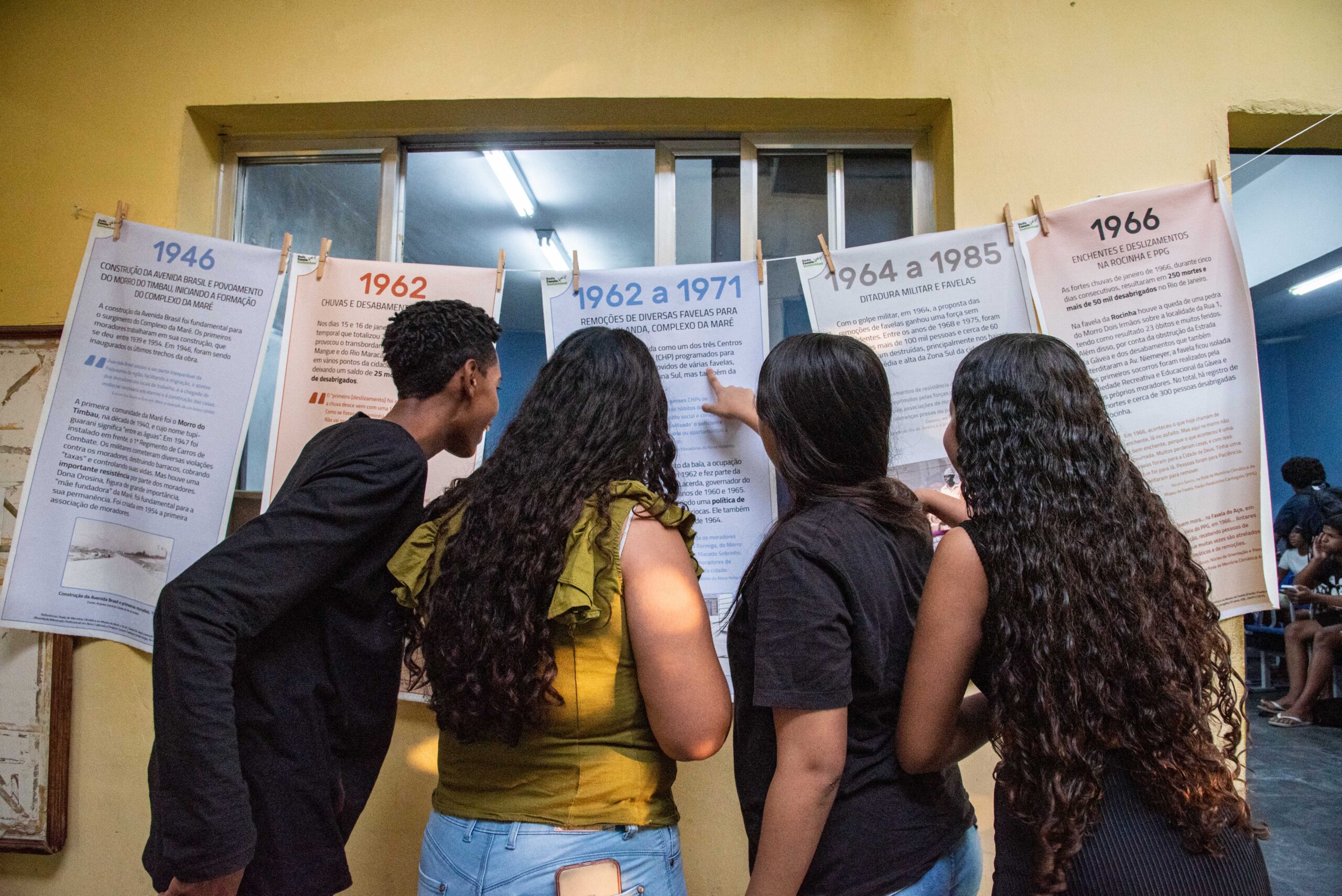
Clique aqui para Português
The Favela Climate Memory Exhibition, organized by museums and memory projects associated with the Sustainable Favela Network (SFN)*, is currently being shown as part of World Environment Month, at the Center for Studies and Solidarity Actions of Maré (CEASM) in Complexo da Maré, in Rio’s North Zone. The event opened on World Environment Day, and was attended by coordinators, students, and teachers of CEASM’s College Preparatory Course project. Among those present were young recipients of FAPERJ scholarships who carry out projects at the Maré Museum, as well as student coordinators of Ecoa Maré, who presented their work on socio-environmental education in the Maré region in addition to enjoying the exhibition.
The exhibition emerged as the final product of five favela climate memory circles held by the following community museums: Maré Museum in Complexo da Maré, Sankofa Museum in Rocinha, Historic Orientation and Research Nucleus of Santa Cruz (NOPH) in Antares, the Favela Museum (MUF) in Pavão-Pavãozinho and Cantagalo, and the Vidigal Memories Nucleus. All five are members of the Sustainable Favela Network’s Culture and Local Memory Working Group.
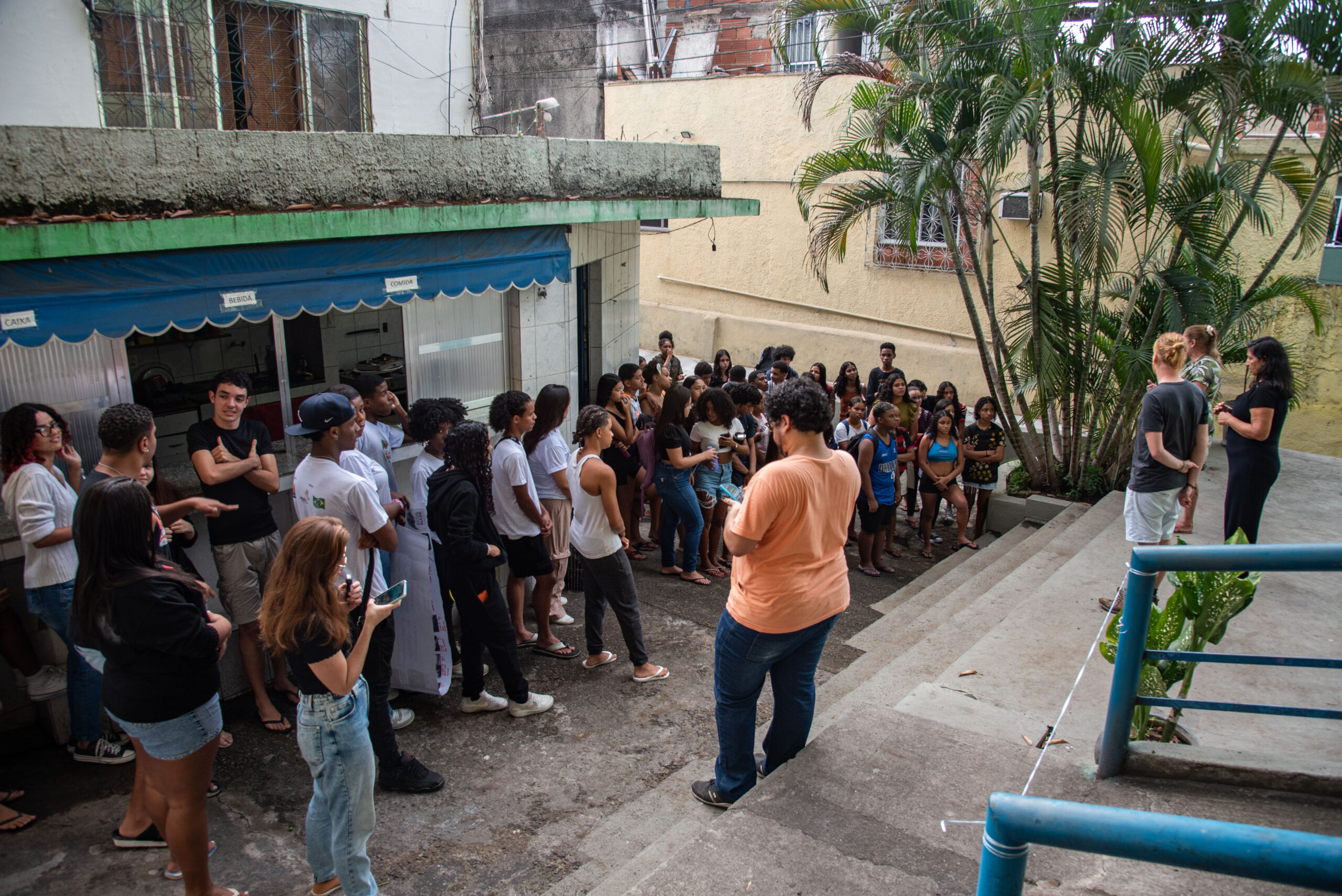
Before the exhibition’s official opening, which included a ceremonial ribbon cutting by Marli Damascena, around 50 students from the CEASM College Prep Course attended a presentation on the importance of the Favela Climate Memory exhibition being held in Maré. The presentation provided context for discussions held the previous week, during which the students watched the exhibition’s official video. This video showcased parts of the process of the memory circles in the five participating favelas and facilitated discussions on climate change among the students.
“We held our memory circles on climate change… [Today] we’re going to have a ceremonial opening here, and you’ll see exactly what we discussed. The Climate Memory Circles were held in five favelas in Rio de Janeiro: Maré, Antares, Rocinha, PPG and Vidigal. So, you’re going to look at that timeline over there and see each resident telling their story.” — Marli Damascena, co-founder of the Maré Museum
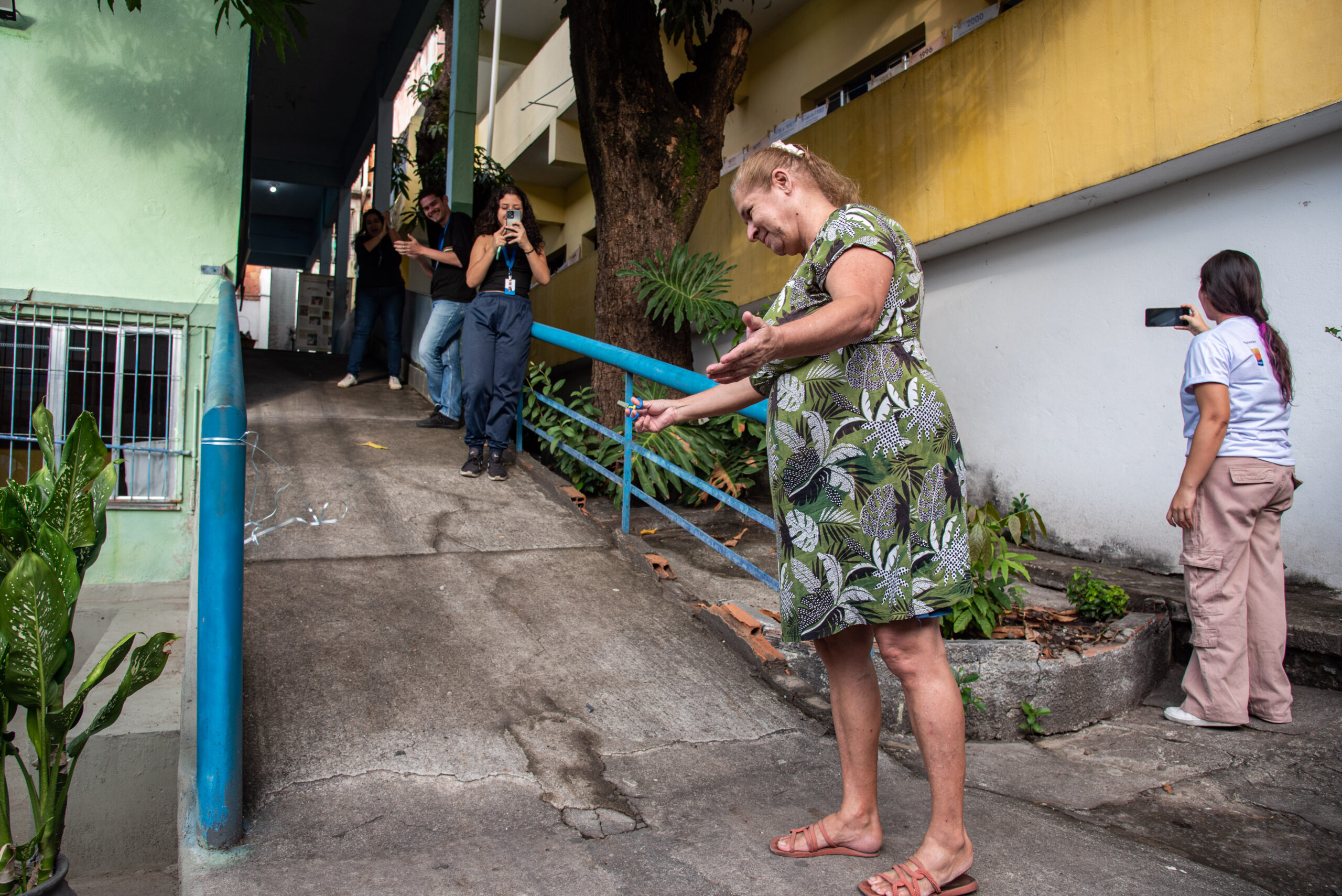
Marli Damascena then held the ceremonial opening of the Favela Climate Memory exhibition at CEASM, showcasing banners and timelines that allow visitors to experience the stories, solutions and significant climate events for the five participating favelas.
During the event, we spoke with the curriculum coordinator of the CEASM preparatory course about the importance of student participation in the Favela Climate Memory exhibition. She told us that the students deepened their understanding of climate issues through classroom discussions.
“We’ve already been discussing the issue of climate change… actions that have taken place at the Maré Museum… Teachers have been working on climate change, on what’s been happening, the tragedies it’s caused and what may come. We understood the importance of [the students from the prep course] looking back… and knowing that we’ve been dealing with these events for a while, that they’re not an isolated incident, but an ongoing process. Therefore, the issue of landslides, among others featured in the exhibition, we bring those into the classroom as well. I think this combination has been perfect. It will be great to have this exhibition here.” — Thais Felicidade, curriculum coordinator of the CEASM preparatory course.
Cida Rodrigues, one of the advisors of Ecoa Maré and CEASM, presented the Ecoa Maré project and contextualized the work with socio-environmental issues in the region.
“The Ecoa project operates from Monday to Friday, from 9am to noon. They also provide training here at the organization, and hold workshops in public spaces and public schools, working on socio-environmental issues.” — Cida Rodrigues
Fernanda Souza, a youth from the Ecoa Maré project, presented the line of work that she and other participants develop.
“Ecoa focuses on socio-environmental education, aiming to share our understanding of global and environmental issues in a fun way. This year, our emphasis has been on schools, but we’re not limited to that; we also work with other institutions… through a methodology of awareness and mobilization.” — Fernanda Souza
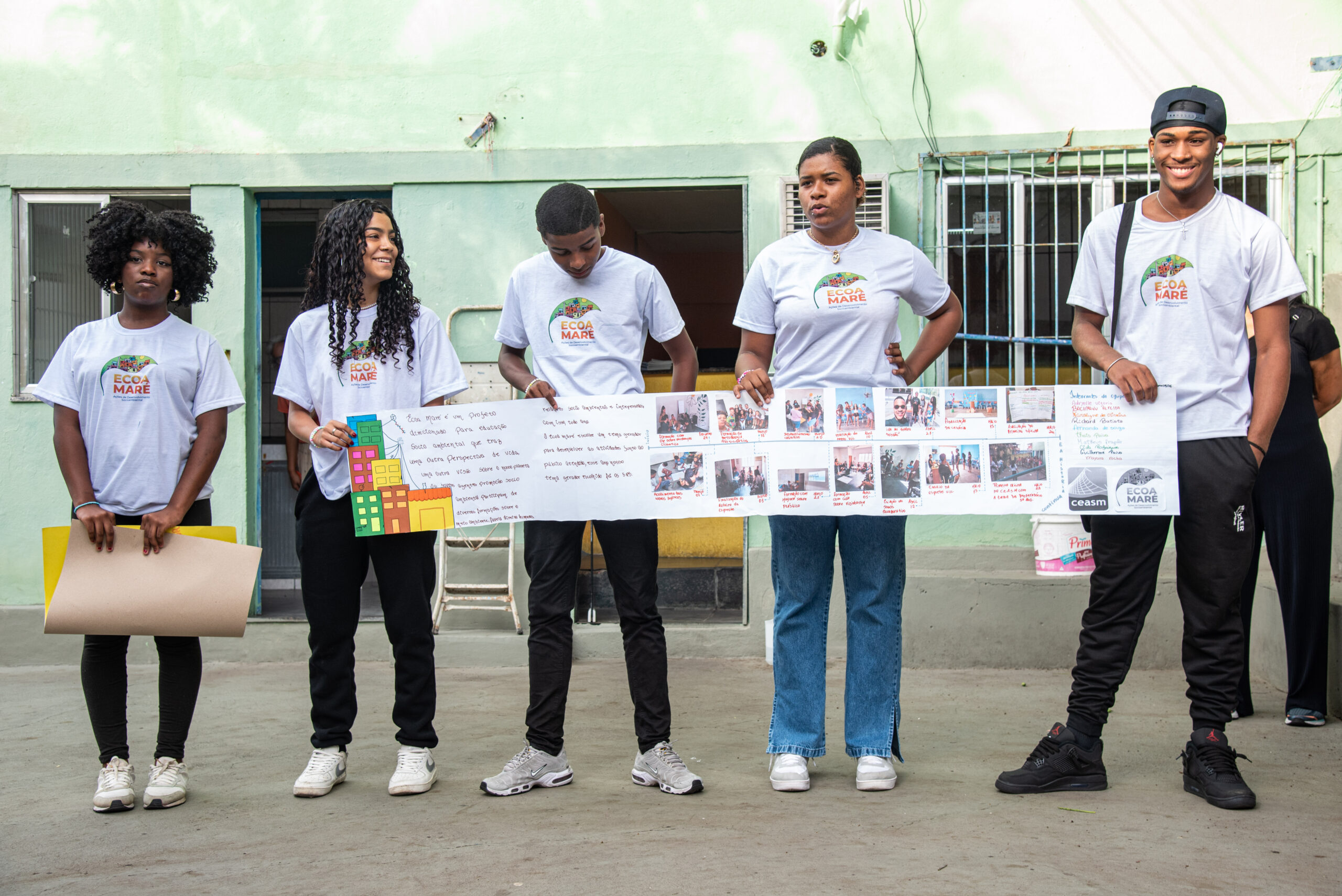
The young members of Ecoa Maré put together a timeline that included photos documenting their activities and training sessions in the Maré community. They also discussed the “Voice, Interpretation, and Body,” or VIC project, where they perform skits for young Ecoa participants. Ecoa Maré also repurposes materials to create toys and games for children.
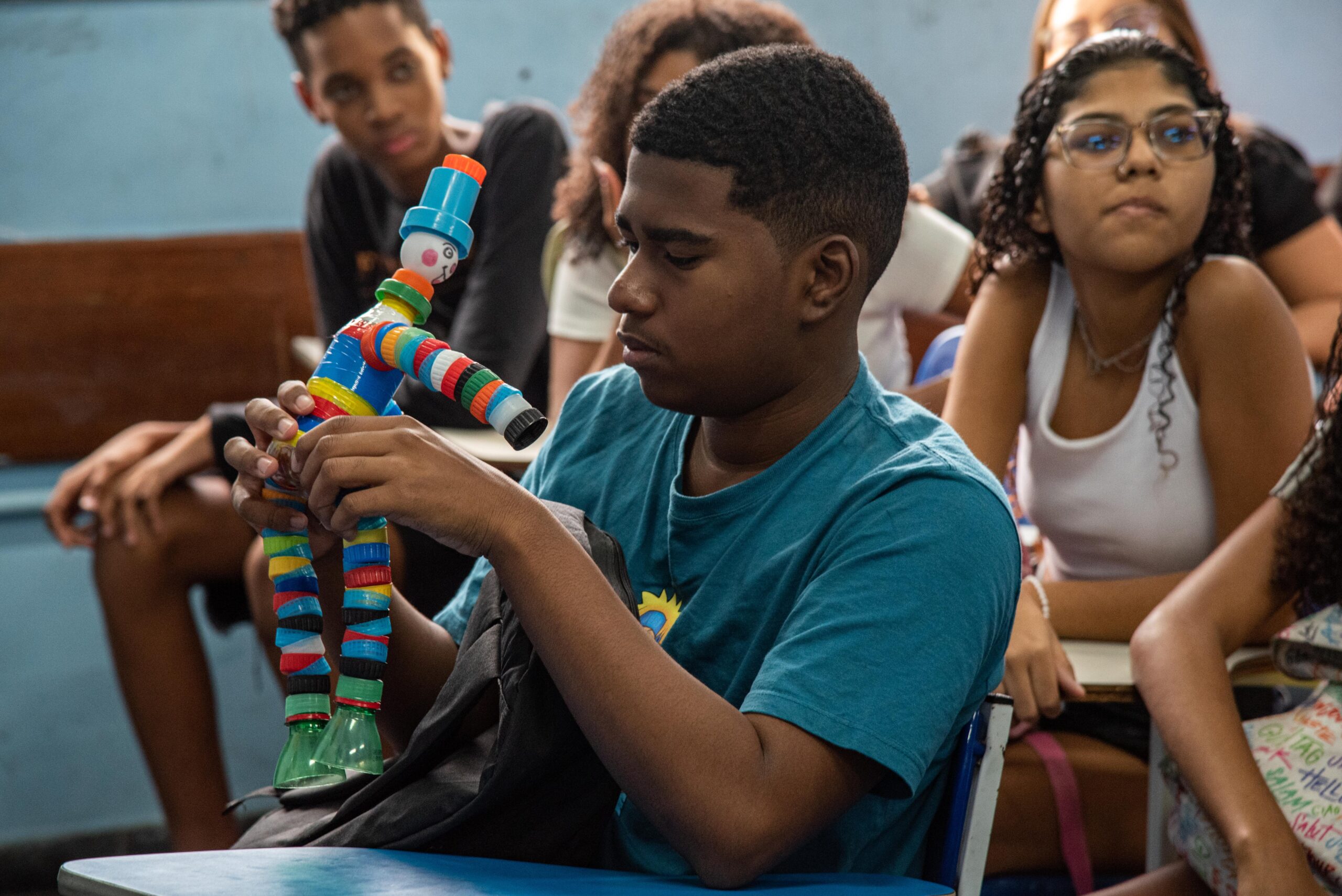
Guilherme Paiva, coordinator of Ecoa Maré, spoke about the importance of the Favela Climate Memory exhibition arriving in Maré.
“This exhibition is extremely important for the residents of our region because our memories are often forgotten and rarely talked about. Our memories are not being broadcasted on mainstream media. So, when a favela has the opportunity to share its own memories, its own lived experiences, it’s profoundly significant for our self-recognition, for our identity, and our sense of belonging to the place we call home.
Ecoa Maré aims to raise awareness and mobilize residents from our area regarding the socio-environmental issues that affect everyone in Maré. When we work with memory, we understand that this place has history, this place has something meaningful to say about the environment and climate change. Climate change is in the media today, but nobody talks about climate change in the favela. Who is going to be harmed? Who is at the forefront of being affected by climate change? It’s the poorest communities, it’s Black people who live in these peripherial areas.” – Guilherme Paiva, Ecoa Maré coordinator
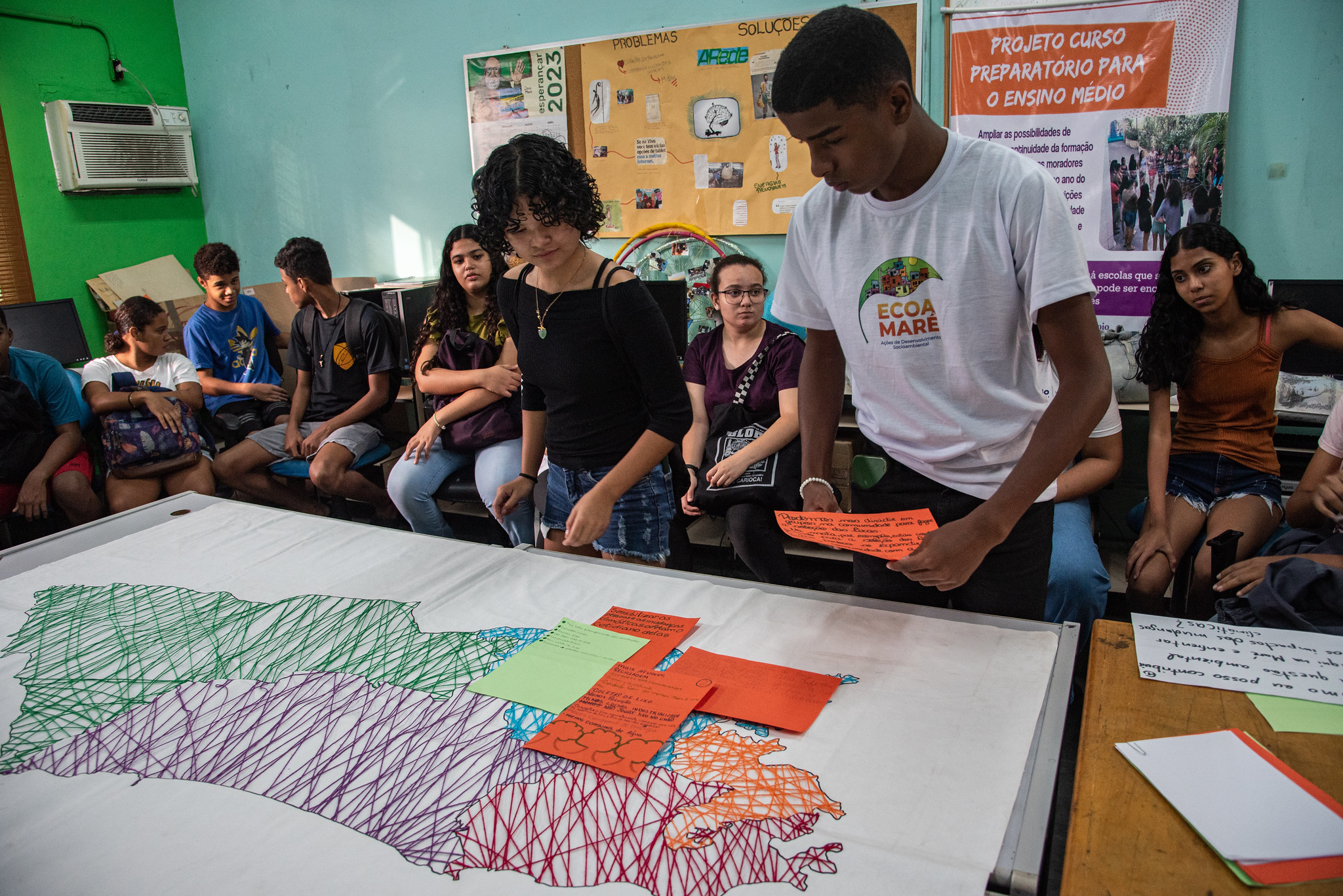
At the end of the event, youth from the CEASM prep course and Ecoa Maré engaged in an interactive activity with a handmade map of Rio de Janeiro, crafted for the exhibition by Marli Damascena. They placed post-it notes indicating improvements they hope to see in their community. The World Environment Day activities concluded with students exploring toys and games created by Ecoa Maré members from repurposed materials. Besides showcasing their creations, they explained the distinction between recycling and repurposing.
Don’t miss the full album by Bárbara Dias on Flickr:
*The Sustainable Favela Network (SFN) and RioOnWatch are both initiatives realized by not-for-profit organization Catalytic Communities (CatComm).
About the author and photographer: Bárbara Dias was born and raised in Bangu, in Rio’s West Zone. She has a degree in Biological Sciences, a master’s in Environmental Education, and has been a public school teacher since 2006. She is a photojournalist and also works with documentary photography. She is a popular communicator for Núcleo Piratininga de Comunicação (NPC) and co-founder of Coletivo Fotoguerrilha.

